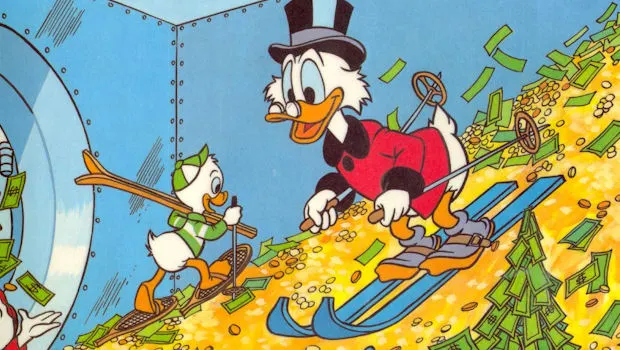
So by pure chance I picked up a copy of The Deficit Myth, by Stephanie Kelton. I suppose this is the Bible of Modern Monetary Theory (MMT). I’m totally convinced, although various puddleglums (sometimes quartered in surprising corners of the swamp) assure me that it’s snake oil.
I recommend the book to those who have heard the brouhaha about this topic. Go to the source; don’t just believe what the doomsters tell you. You may or may not be convinced, but the book is lucid and plain-spoken, and it disposes briskly of most of the canards on this topic.
Let’s begin with the limitations. Kelton acknowledges that the limit of sovereign money-printing is unacceptable levels of inflation. That is, MMT (at least Kelton’s version) doesn’t claim that greenbacks can roll off the press ad infinitum. Her claim, rather, is that deficits as such don’t create unacceptable inflation ipso facto and that much depends on the state of the economy in general and, more specifically, on where the deficit spending goes.
She notes, accurately, that even official economics allows as how some degree of inflation is OK (2% seems to be the canonical benchmark).
She’s very good and eloquent on how central banks worry a lot about how bad inflation might happen and dial up unemployment just in case, even when bad inflation is not happening. One has to wonder whether there’s some other agenda here.
She’s brilliant on the false analogy of household finance – clearly, a sovereign who can print money is not in the same position as a household that can’t. Yet precisely this false analogy absolutely dominates ordinary political discourse – balance the budget, living beyond our means, all that crap.
I wonder whether, as in the Populist days, the question doesn’t come down to hard money (beloved by creditors) versus easy money (beloved by everybody else). Two percent inflation is OK, grudgingly, for the creditors, at the cost of high unemployment (not so popular with everybody else).
Thought experiment: What would monetary and fiscal policy look like if nobody cared much about creditors, apart from giving them a basis point over inflation or two? What are they going to do with their money except invest or lend it, on whatever terms they can negotiate? Do the Scrooge McDuck thing, convert it to specie, and roll around in it?
Bless ‘em if so; if they sequester their assets (“thesaurization” is the term historians use) and don’t spend them, that gives even more scope for non-inflationary public expenditure, hopefully directed to more constructive ends than the vain consumption of the frivolous rich.
